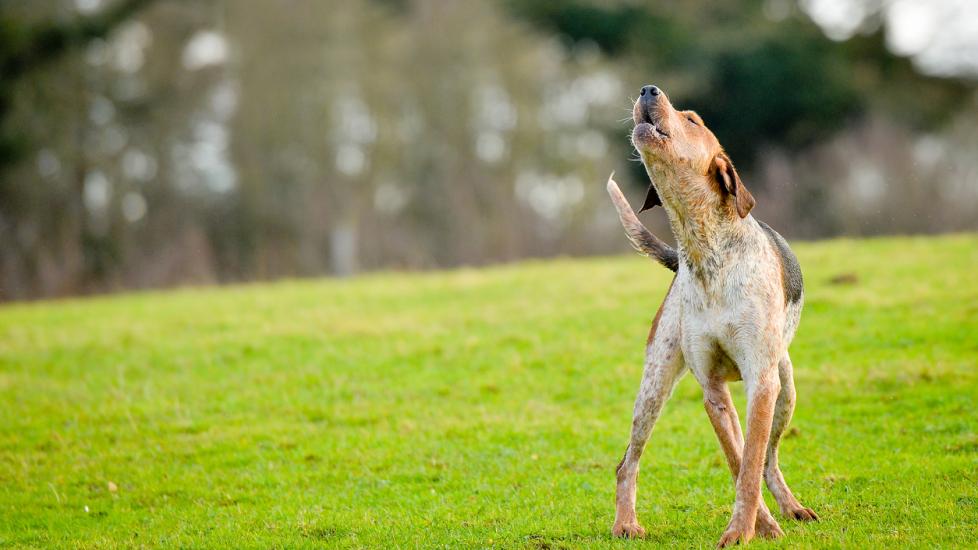Why Do Dogs Howl? 5 Reasons To Understand Why Your Dog Is Howling
Dogs are undoubtedly one of the most beloved and highly regarded companion animals. They are known for their loyalty, playfulness, and social nature. One of the distinct behaviors of dogs that fascinates many pet parents is howling.
Dogs howl for a variety of reasons, and understanding why dogs howl can help pet parents better communicate with and care for their furry friends. Let’s take a look at how dogs may have come to have this unusual behavior, and what they might use it for.
The Origin of Howling in Dogs
Domesticated dogs descended from wolves over 15,000 years ago. Even though behaviorally, dogs are no closer to wolves than humans are to primates, their evolutionary development helps us understand some of their unique traits. Wolves howl as a means of communication with other wolves. Howling is used to assemble the pack, coordinate the pack’s hunting activities, establish territories, and warn other groups to stay away.
Shop Toys, Training and More
- ThunderEase Powered by ADAPTIL Calming Pheromone Collar for Dogs, Small, up to 14-in neck$19.99Chewy Price
- Nutramax Solliquin Soft Chew Calming Behavioral Health Supplement for Small/Medium Dogs & Cats, 75 count$19.99Chewy Price
- ThunderShirt Classic Anxiety & Calming Vest for Dogs, Heather Grey, Medium$41.64Chewy Price
- Purina Pro Plan Veterinary Diets Calming Care Liver Flavored Powder Calming Supplement for Dogs, 30 count$33.99Chewy Price
5 Reasons Domesticated Dogs Howl
Communication
Like wolves, dogs howl to communicate with other dogs, especially as a way to send a message over a long distance. Howling can also be used as a signal to others about a dog’s presence or location and an invitation to interact.
Express Emotions
While dogs don’t have the same range of complex emotions as humans do, they may use howling to express an emotional state. When dogs are excited, for example, they may howl to show their excitement. Similarly, dogs may howl when they are upset, stressed, anxious, or lonely. Howling can also be a sign of frustration or boredom.
Response to Their Environment
Dogs may howl in response to something going on in their environment, such as blaring sirens, loud music, or other dogs howling. This last behavior is known as “contagious howling” and is common in dogs who live in urban areas, where your dog is more likely to hear the sound of other pups.
Territory identification
Dogs may howl to announce their territory. By howling, dogs communicate to other dogs that a particular area is theirs and others should stay away.
Breed-specific behavior
Some dog breeds are genetically more likely to howl than others, due to line breeding for particular traits. Beagles, for example, use howling to alert others during hunting and play. Similarly, Huskies and Malamutes howl to communicate with other dogs because that’s the way they were bred for work.
If Howling Is Excessive, Seek Veterinary Guidance
For better or worse, howling is a natural behavior for many dogs and serves as a means of communication. It’s one of the many fascinating behaviors of dogs that make them unique and lovable pets. If your dog loves to howl more than others, high-value treats can help curb excitement and stress caused from howling. Treats can include longer lasting rawhides, calming chews, or even an interactive treat game.
It is important to note, however, that excessive howling may be a sign of an underlying medical or behavioral issue. Pet parents who notice what seem like extreme or chronic cases (howling without stopping even for treats, howling while performing other behaviors like biting, or in signs of pain) of howling should seek veterinary care.
Paying attention to your dog’s howling behavior and understanding the reasons behind it can help you be a better communicator and pet parent to your pup.
Featured Image: iStock.com/dageldog




